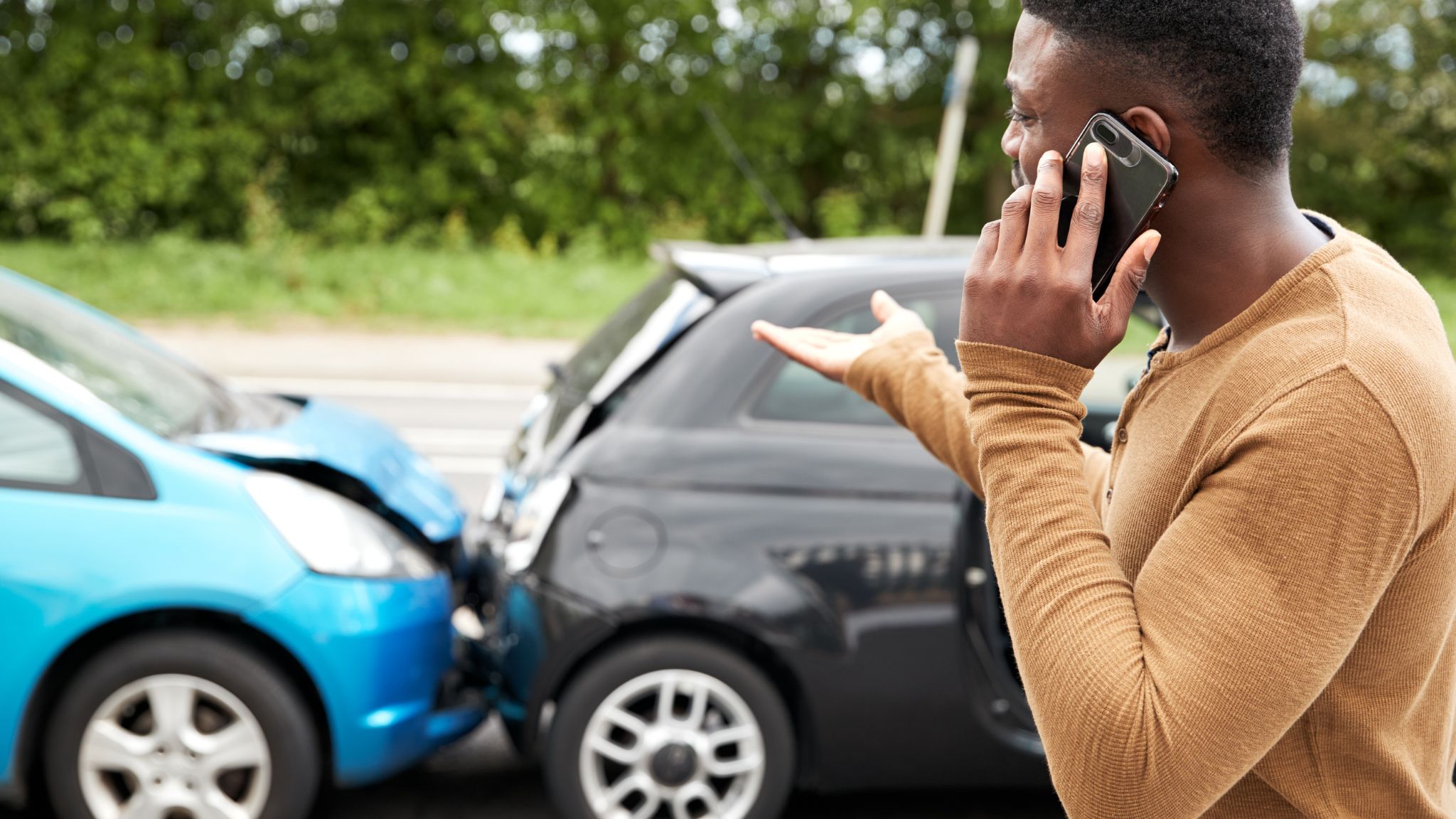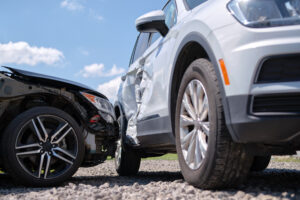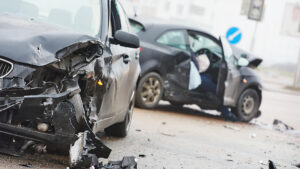
You can be careful all you want while on the road, but when someone else is being reckless, you can never be so sure of your safety. Being hit by a drunk driver changes everything in an instant. You didn’t cause the crash, and you couldn’t have stopped it. Someone else made the reckless choice to drive under the influence, and now you’re left dealing with the aftermath.
In 2023, the California Office of Traffic Safety reported 1,355 victims in DUI-related cases. These incidents continue to endanger everyone on the road: drivers, passengers, and pedestrians alike. Victims often face serious injuries, mounting medical bills, lost income, and emotional trauma.
And while the drunk driver may face criminal charges, that doesn’t automatically cover your losses. California law gives you the right to seek compensation through insurance claims or civil lawsuits, but what you do right after the crash can significantly affect your case.
In this article, we’ll explain what to do immediately after a drunk driving accident in Ontario, CA, and how to protect your legal rights while you focus on recovery.
DUI, or Driving Under the Influence, is a serious criminal offense under California law. It means operating a vehicle while impaired by alcohol, drugs, or both; or any substances that affect judgment, reaction time, and coordination.
California records some of the highest DUI-related arrests in the country. Each of these incidents starts the same way: someone makes the reckless choice to drive while impaired, and within seconds, an ordinary trip can turn into tragedy.
Every road user is at risk when drivers ignore safety and drive under the influence. Staying sober behind the wheel isn’t only a responsible decision, it’s a life-saving one. Choosing not to drink or use drugs before driving protects not just you, but everyone sharing the road with you.
Police documentation becomes the foundation of your case. Officers do more than just write down what happened. They investigate, gather evidence, and create an official record that insurance companies and courts rely on.
When police arrive, they’ll look for signs of intoxication. Slurred speech, bloodshot eyes, the smell of alcohol, and erratic behavior all get noted in the report. Officers may conduct field sobriety tests or breathalyzer tests. If the driver fails these tests, they’ll be arrested on the spot.
The police report includes details you’ll need later:
Ask the responding officer for the report number before you leave. You’ll use this number to request a copy within a few days. This document becomes powerful evidence when you file insurance claims or pursue a lawsuit.
Strong evidence strengthens your claim and prevents disputes about what really happened. If you’re physically able and it’s safe to do so, gather as much documentation as you can.
Take pictures of:
People who saw the crash can provide objective accounts. Get their full names and phone numbers. Ask if they’re willing to give a brief statement about what they observed. Some witnesses leave before police arrive, so collecting this information yourself preserves their testimony.
You need the drunk driver’s insurance details and contact information. Get their:
Avoid discussing who was at fault or apologizing for anything. Stick to exchanging basic information and leave the investigation to the police
What Medical and Legal Steps Should You Take After Leaving the Scene?
Leaving the accident scene affects both your health and your legal case. Follow through on medical care and insurance requirements quickly. Then:
Visit a doctor as soon as possible. Some injuries like whiplash, concussions, internal bleeding, and soft tissue damage don’t show symptoms right away. Having a medical exam creates documentation linking your injuries to the accident.
Keep every medical record, bill, receipt, and prescription related to your treatment. Save documentation for:
Contact your insurer within 24 to 48 hours. Give them basic facts about the accident without speculating about injuries or fault. Your policy requires prompt reporting, and delays can create problems with your claim.
California doesn’t follow a pure no-fault insurance system like some states, but you may need to use your own insurance coverage initially. You can still pursue the drunk driver for full damages through a civil claim.
California Vehicle Code §16000 requires you to file a crash report directly with the Department of Motor Vehicles under certain conditions.
You must file Form SR-1 if the accident involved:
This form is separate from the police report. You have 10 days from the date of the accident to submit it to the DMV. Your insurance company may file this form on your behalf, but confirm they’ve done so. Check your policy documents or call to verify.
Failing to file this report can result in your driver’s license being suspended. The DMV doesn’t care who caused the accident. The requirement applies to all drivers involved.
Yes. Filing a civil lawsuit against the drunk driver is your right, and criminal charges don’t affect your ability to pursue compensation.
A civil case works separately from the criminal prosecution. The criminal court determines guilt and punishment. The civil court determines financial responsibility and compensation. You can file your lawsuit even if the criminal case is still pending.
Your civil claim can include:
A DUI conviction makes your civil case stronger. The criminal conviction proves the driver was intoxicated and negligent. However, you can still file and win a civil lawsuit even if the driver isn’t acquitted. The burden of proof is lower in civil court.
Drunk drivers aren’t always the only ones responsible. Depending on how they got intoxicated and who allowed them to drive, other parties might share liability.
California’s dram shop laws hold alcohol providers accountable under certain circumstances. A bar, restaurant, or party host can be sued if they served alcohol to:
If a bartender kept serving drinks to a visibly drunk customer who then caused your crash, the establishment may be liable. The same applies to someone who hosted a party and served alcohol to underage guests.
If the drunk driver was working at the time of the crash, their employer may be responsible. This applies when the driver was:
Employers can be held liable for their employees’ negligent actions during work hours.
Someone who lends their car to a person they know is drunk or has a history of drunk driving may face liability. This is called negligent entrustment. The owner’s poor judgment in allowing that person to drive contributed to your injuries.
An attorney investigates all potential sources of compensation. Drunk drivers often lack sufficient insurance to cover serious injuries. Identifying additional liable parties increases your chances of full recovery.
California’s statute of limitations gives injury victims two years from the accident date to file a personal injury lawsuit. This deadline is firm. If you miss it, courts will dismiss your case regardless of how strong your claim is.
Two years might sound like plenty of time, but injury cases take months to build. Evidence needs gathering, medical treatment continues, and settlement negotiations can drag on. Starting early gives your attorney time to build the strongest possible case.
If a government employee or government vehicle was involved in your accident, different rules apply. You must file an administrative claim with the appropriate government agency within six months of the crash. Only after this claim is denied can you file a lawsuit, and you’ll have just six more months to do so.
These shortened deadlines make early legal help critical for accidents involving city vehicles, county buses, or other government property.
Drunk driving cases involve complex legal procedures that most people aren’t familiar with. An experienced attorney handles these details while you focus on healing.
A lawyer provides services that protect your interests:
Most car accident attorneys work on contingency fees. You pay nothing up front. The attorney only gets paid if you receive compensation. This arrangement lets you access professional legal help without worrying about hourly billing.
Nobody plans on being hit by a drunk driver. The physical injuries are hard enough. Add in the stress of insurance claims, medical bills, and legal deadlines, and the whole situation can feel impossible to manage alone.
Thompson Law has helped many victims in Ontario, CA, recover compensation after drunk driving accidents. We understand the unique challenges these cases present, and we handle every detail with care. You deserve justice and fair compensation for what you’ve been through.
Contact Thompson Law today for a FREE CONSULTATION about your drunk driving accident case in Ontario, California.






Thompson Law charges NO FEE unless we obtain a settlement for your case. We’ve put over $1.9 billion in cash settlements in our clients’ pockets. Contact us today for a free, no-obligation consultation to discuss your accident, get your questions answered, and understand your legal options.
State law limits the time you have to file a claim after an injury accident, so call today.